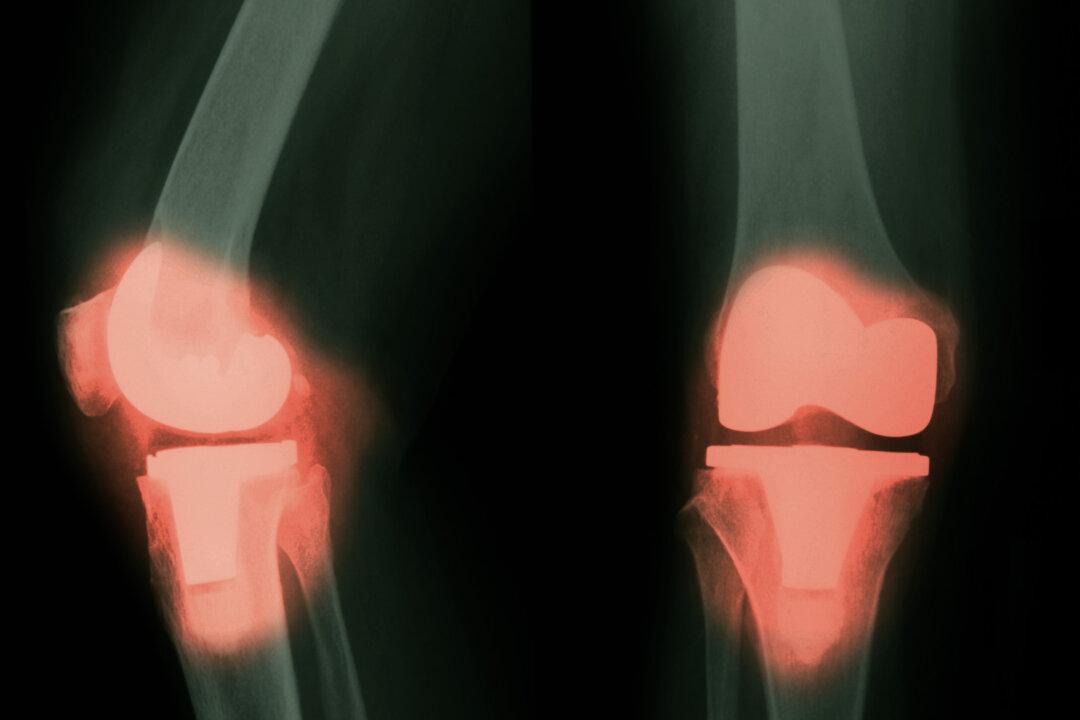Dr. Nikhil Palekar, medical director of the Stony Brook Center of Excellence for Alzheimer’s Disease and director of the Division of Geriatric Psychiatry, said there is currently no evidence supporting the use of supplements to slow the progression of Alzheimer’s disease.
However, some studies found certain supplements and diet changes could reduce our risk of developing Alzheimer’s disease or other types of cognitive decline.
3 Supplements Reduce Alzheimer’s Risk
1. Vitamin D
British and Canadian researchers spent about 10 years tracking over 12,000 older adults without dementia.
Story continues below advertisement
The researchers found that those who took vitamin D supplements during the study period had a 40 percent reduced risk of developing dementia compared to those who never took the vitamin.
The findings also showed that:
- Vitamin D effects were significantly greater in females than males, and in normal cognition versus mild cognitive impairment.
- The benefits of vitamin D supplementation to reduce risk were more significant in those without a genetic predisposition to the disease.
“Vitamin D has potential for dementia prevention,” the study authors concluded.
2. B Vitamins
A
systematic review of studies found that B vitamins play a crucial role in maintaining brain health and reducing the risk of cognitive decline.
The benefits of B vitamins for preserving cognitive health are listed below.
Reduce Homocysteine Levels
Elevated
levels of homocysteine, an amino acid, have been linked to an increased risk of cognitive decline and Alzheimer’s disease.
Vitamins B6, B9 (folic acid), and B12 can help
lower homocysteine levels in the blood, which may help protect the brain.
Support Brain Function
B vitamins are involved in
producing neurotransmitters, which are essential for communication between brain cells and other brain functions.
Specifically, B vitamins are important for maintaining healthy serotonin levels, a neurotransmitter that regulates mood.
Story continues below advertisement
“Now that we have more evidence that serotonin is a chemical that appears affected early in cognitive decline, we suspect that increasing serotonin function in the brain could prevent memory loss from getting worse and slow disease progression,” Gwenn Smith, who has a doctorate in neuropsychology and is a professor of psychiatry and behavioral sciences at the Johns Hopkins University School of Medicine, said in
a statement.
B vitamins also maintain the
myelin sheath that surrounds and protects nerve fibers in the brain. These functions are critical for supporting cognitive function and preventing age-related decline.
Reduce Inflammation
Chronic inflammation is a risk factor for cognitive decline and Alzheimer’s disease.
B vitamins, particularly vitamins B1 (thiamine), B2 (riboflavin), and B3 (niacin), have
anti-inflammatory properties that can help to reduce inflammation in the brain and protect against cognitive decline.
3. Omega-3
Another nutrient essential in reducing Alzheimer’s disease risk is omega-3 fatty acids.
Story continues below advertisement
Research shows that diets rich in
omega-3 fatty acids, particularly docosahexaenoic acid (DHA), may help to reduce the risk of cognitive decline and dementia. Omega-3 fatty acids are found in fatty fish, such as salmon and mackerel, as well as in nuts and seeds.
A
recent study examining nearly 212,000 cognitively healthy people concluded that regularly taking fish oil supplements was significantly associated with lower risks of incident all-cause dementia, vascular dementia, frontotemporal dementia, and other dementia—but not Alzheimer’s disease.
“These findings support that habitual use of fish oils may be beneficial for the prevention of dementia in clinical practice,” the study authors concluded.
Herbs That Protect Against Dementia
Several herbs have shown protective effects against Alzheimer’s or other forms of cognitive decline.
Story continues below advertisement
Ashwagandha, also called Indian ginseng or winter cherry,
has been found to restore synaptic function, encourage neural regeneration, reverse mitochondrial dysfunction, and improve auditory-verbal working memory, according to a 2021 paper published in Biomolecules.
Cat’s claw, found in South America, is shown to have anti-inflammatory and antioxidant properties and can inhibit plaques and tangles symptomatic of Alzheimer’s, according to the Biomolecules paper.
The paper also found that Bacopa monnieri, also called brahmi or water hyssop, has benefits that include improved memory, attention, and executive function. It can also inhibit neural cell death and delay brain aging.
Ginkgo biloba has been used for centuries to improve cognitive function. A
systematic review of controlled trials found that taking ginkgo biloba supplements was more effective than a placebo for improved cognitive function in people with Alzheimer’s, vascular, or mixed dementia.
Story continues below advertisement
Dr. Jonathan J. Rasouli, director of Complex and Adult Spinal Deformity Surgery at Staten Island University Hospital, part of Northwell Health in New York, pointed out that although several studies demonstrate a benefit for these supplements, “they are very limited in reproducibility and lack adequate control groups.
“We can only suggest there is some link between supplements and their possible neuroprotective benefits,” he said.
It’s important to note that while supplements may help prevent or mitigate cognitive decline, they shouldn’t be used as a substitute for a healthy diet.
Additionally, talking to your health care provider before starting any new supplements is always a good idea.
Diet Makes a Difference
There is evidence that a diet rich in
fruits and vegetables, particularly those with high levels of antioxidants, may help to reduce the risk of cognitive decline.
Story continues below advertisement
Antioxidants protect the brain against
oxidative stress, which can contribute to brain damage and cognitive decline.
Maintaining a
healthy and balanced diet is essential to reduce the risk of developing Alzheimer’s disease.
This includes eating various nutrient-rich foods, especially those high in vitamin B12, omega-3 fatty acids, and antioxidants.
The
MIND diet is associated with the preservation of cognitive function, likely through its protective effects against cardiovascular disease. Study
findings suggest following the MIND diet can substantially slow cognitive decline as we age.
Story continues below advertisement
Palekar explained that the MIND diet is a low-salt type of Mediterranean diet shown to be beneficial for brain health.
“As it contains antioxidant-rich foods, as well as omega-3 fatty acids,” he said.
A low-salt diet has also been shown to benefit brain functioning independent of its action on improving hypertension.
“Given the above benefits, [the] MIND diet is highly recommended for healthy older adults as a way to reduce risk for Alzheimer’s disease, along with daily moderate-intensity aerobic exercise, cognitive activities, and socialization,” said Palekar.





